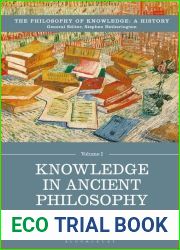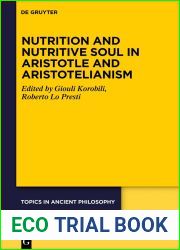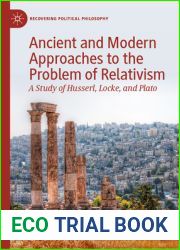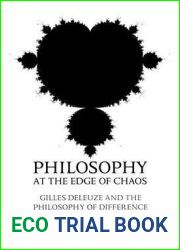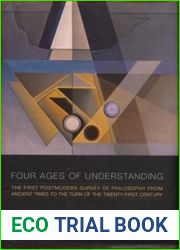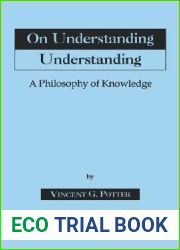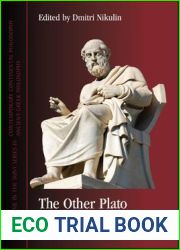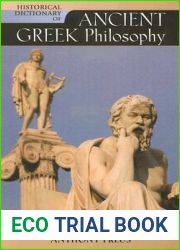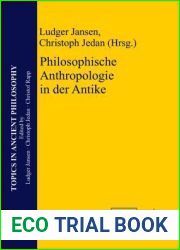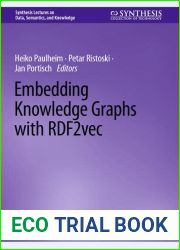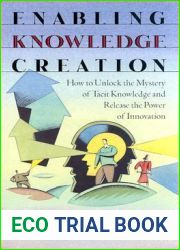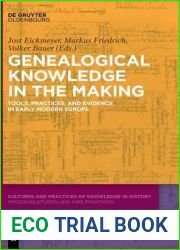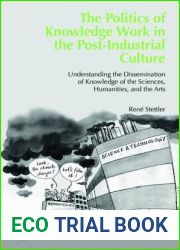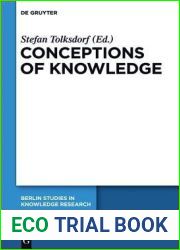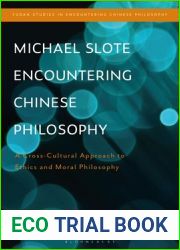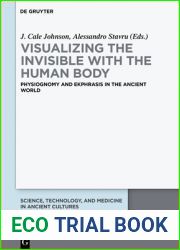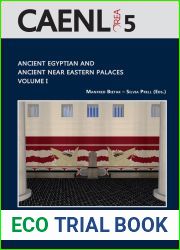
BOOKS - Knowledge in Ancient Philosophy

Knowledge in Ancient Philosophy
Author: Nicholas D. Smith
Year: September 1, 2018
Format: PDF
File size: PDF 5.4 MB
Language: English

Year: September 1, 2018
Format: PDF
File size: PDF 5.4 MB
Language: English

The book "Knowledge in Ancient Philosophy" offers a comprehensive overview of the evolution of knowledge in Western philosophy, from the Presocratics to Plato. The text is divided into four volumes, each covering a specific period in the history of philosophy. This first volume focuses on the Presocratics, Sophists, and the theories of knowledge proposed by Socrates and Plato. The book provides original insights into the various ways in which philosophers have sought to understand knowledge throughout history, highlighting the key concepts and debates that have shaped the discipline. The Presocratics, who lived in ancient Greece in the 6th and 5th centuries BCE, were among the first to question the traditional beliefs and myths of their time. They posited that knowledge could be acquired through reason and observation, rather than mere acceptance of dogma. For example, Thales of Miletus believed that water was the fundamental substance of the universe, while Heraclitus argued that everything is constantly changing. These early philosophers laid the groundwork for the development of Western philosophy, and their ideas continue to influence contemporary epistemology. The Sophists, who lived in the 5th century BCE, took a more practical approach to knowledge, emphasizing the importance of rhetoric and persuasion in human interaction. They believed that knowledge was not fixed or absolute, but rather something that could be manipulated and adapted to suit one's needs. Protagoras, for instance, famously declared that "man is the measure of all things suggesting that truth is relative and subjective.
Книга «Знание в античной философии» предлагает всесторонний обзор эволюции знания в западной философии, от пресократики до Платона. Текст разбит на четыре тома, каждый из которых охватывает определённый период истории философии. Этот первый том посвящен пресократикам, софистам и теориям познания, предложенным Сократом и Платоном. Книга дает оригинальное понимание различных способов, которыми философы стремились понять знание на протяжении всей истории, выделяя ключевые концепции и дебаты, которые сформировали дисциплину. Пресократы, жившие в Древней Греции в VI и V веках до нашей эры, были одними из первых, кто поставил под сомнение традиционные верования и мифы своего времени. Они утверждали, что знание может быть приобретено через разум и наблюдение, а не просто принятие догмы. Например, Фалес Милетский считал, что вода является фундаментальной субстанцией Вселенной, а Гераклит утверждал, что всё постоянно меняется. Эти ранние философы заложили основу для развития западной философии, и их идеи продолжают влиять на современную эпистемологию. Софисты, жившие в V веке до нашей эры, использовали более практический подход к знаниям, подчеркивая важность риторики и убеждения в человеческом взаимодействии. Они верили, что знание не является фиксированным или абсолютным, а скорее чем-то, чем можно манипулировать и адаптировать под свои потребности. Протагор, например, знаменито заявил, что «человек есть мера всего», предполагая, что истина относительна и субъективна.
livre « La connaissance dans la philosophie antique » offre un aperçu complet de l'évolution de la connaissance dans la philosophie occidentale, de la presocratie à Platon. texte est divisé en quatre volumes, chacun couvrant une période spécifique de l'histoire de la philosophie. Ce premier volume est consacré aux presocraties, aux sophistes et aux théories de la connaissance proposées par Socrate et Platon. livre donne une compréhension originale des différentes façons dont les philosophes ont cherché à comprendre la connaissance tout au long de l'histoire, mettant en évidence les concepts clés et les débats qui ont façonné la discipline. s Presocrates, qui ont vécu dans la Grèce antique dans les siècles VI et V avant JC, ont été parmi les premiers à remettre en question les croyances traditionnelles et les mythes de leur époque. Ils ont affirmé que la connaissance peut être acquise par la raison et l'observation, et non pas simplement par l'acceptation d'un dogme. Par exemple, Thales Miletsky pensait que l'eau était la substance fondamentale de l'univers, et Héraclite affirmait que tout changeait constamment. Ces premiers philosophes ont jeté les bases du développement de la philosophie occidentale, et leurs idées continuent d'influencer l'épistémologie moderne. s sophistes du Ve siècle av. J.-C. ont adopté une approche plus pratique de la connaissance, soulignant l'importance de la rhétorique et de la conviction dans l'interaction humaine. Ils croyaient que la connaissance n'était pas fixe ou absolue, mais plutôt quelque chose qui pouvait être manipulé et adapté à leurs besoins. Protagor, par exemple, a célèbre déclaré que « l'homme est la mesure de tout », suggérant que la vérité est relative et subjective.
libro «conocimiento en la filosofía antigua» ofrece una visión global de la evolución del conocimiento en la filosofía occidental, desde la presocrática hasta Platón. texto se divide en cuatro volúmenes, cada uno de los cuales abarca un período específico de la historia de la filosofía. Este primer volumen está dedicado a los presocráticos, sofistas y teorías del conocimiento propuestas por Sócrates y Platón. libro proporciona una comprensión original de las diferentes formas en que los filósofos han tratado de entender el conocimiento a lo largo de la historia, destacando los conceptos clave y los debates que han formado la disciplina. presócratas, que vivieron en la antigua Grecia en los siglos VI y V a. C., fueron de los primeros en cuestionar las creencias y mitos tradicionales de su época. Ellos argumentaron que el conocimiento puede ser adquirido a través de la mente y la observación, en lugar de simplemente aceptar el dogma. Por ejemplo, Thales de Mileto creía que el agua era una sustancia fundamental del Universo, y Heráclito afirmaba que las cosas cambiaban constantemente. Estos primeros filósofos sentaron las bases para el desarrollo de la filosofía occidental, y sus ideas continúan influyendo en la epistemología moderna. sofistas, que vivieron en el siglo V a. C., adoptaron un enfoque más práctico del conocimiento, destacando la importancia de la retórica y la creencia en la interacción humana. Creían que el conocimiento no era fijo ni absoluto, sino algo que se podía manipular y adaptar a sus necesidades. Protágoras, por ejemplo, declaró célebre que «el hombre es la medida de todo», asumiendo que la verdad es relativa y subjetiva.
Il libro «Conoscenza in filosofia antica» offre una panoramica completa dell'evoluzione della conoscenza nella filosofia occidentale, dalla presocrazia a Platone. Il testo è suddiviso in quattro volumi, ciascuno dei quali copre un periodo specifico della storia della filosofia. Questo primo volume è dedicato ai presocratici, ai sofisti e alle teorie della conoscenza proposte da Socrate e Platone. Il libro fornisce una comprensione originale dei diversi modi in cui i filosofi hanno cercato di comprendere la conoscenza nel corso della storia, evidenziando i concetti e i dibattiti fondamentali che hanno formato la disciplina. I Presocratici, che vivevano nell'antica Grecia nel VI e nel V secolo avanti Cristo, furono tra i primi a mettere in discussione le credenze tradizionali e i miti del loro tempo. Essi sostenevano che la conoscenza può essere acquisita attraverso la mente e la sorveglianza, non solo l'accettazione del dogma. Per esempio, Fales Miletsky pensava che l'acqua fosse la sostanza fondamentale dell'universo, e Heraklit sosteneva che le cose stavano cambiando continuamente. Questi primi filosofi hanno gettato le basi per lo sviluppo della filosofia occidentale, e le loro idee continuano a influenzare l'epistemologia moderna. I sofisti del V secolo avanti Cristo hanno adottato un approccio più pratico alla conoscenza, sottolineando l'importanza della retorica e della convinzione nell'interazione umana. Credevano che la conoscenza non fosse fissa o assoluta, ma piuttosto qualcosa da manipolare e adattare ai propri bisogni. Protagore, per esempio, ha detto che «l'uomo è la misura di tutto», suggerendo che la verità è relativa e soggettiva.
Das Buch „Wissen in der antiken Philosophie“ bietet einen umfassenden Überblick über die Evolution des Wissens in der westlichen Philosophie, von der Presokratik bis zu Plato. Der Text gliedert sich in vier Bände, die jeweils einen bestimmten Zeitraum der Philosophiegeschichte umfassen. Dieser erste Band ist den Presokratikern, Sophisten und Erkenntnistheorien gewidmet, die von Sokrates und Platon vorgeschlagen wurden. Das Buch bietet einen originellen Einblick in die verschiedenen Arten, in denen Philosophen versucht haben, Wissen im Laufe der Geschichte zu verstehen, und hebt die Schlüsselkonzepte und Debatten hervor, die die Disziplin geprägt haben. Die Presokraten, die im 6. und 5. Jahrhundert vor Christus im antiken Griechenland lebten, gehörten zu den ersten, die die traditionellen Überzeugungen und Mythen ihrer Zeit in Frage stellten. e argumentierten, dass Wissen durch Vernunft und Beobachtung erworben werden kann, anstatt nur ein Dogma zu akzeptieren. Zum Beispiel glaubte Thales von Milet, dass Wasser die Grundsubstanz des Universums ist, und Heraklit behauptete, dass sich die Dinge ständig ändern. Diese frühen Philosophen legten den Grundstein für die Entwicklung der westlichen Philosophie, und ihre Ideen beeinflussen weiterhin die moderne Epistemologie. Sophisten, die im 5. Jahrhundert v. Chr. bten, verwendeten einen praktischeren Ansatz für das Wissen und betonten die Bedeutung von Rhetorik und Überzeugung in der menschlichen Interaktion. e glaubten, dass Wissen nicht fixiert oder absolut ist, sondern etwas, das manipuliert und an ihre Bedürfnisse angepasst werden kann. Protagoras zum Beispiel erklärte berühmt, dass „der Mensch das Maß von allem ist“, was darauf hindeutet, dass die Wahrheit relativ und subjektiv ist.
''
"Antik Felsefede Bilgi" kitabı, Batı felsefesinde bilginin evrimine, presokratikten Platon'a kadar kapsamlı bir genel bakış sunar. Metin, her biri felsefe tarihinin belirli bir dönemini kapsayan dört cilde ayrılmıştır. Bu ilk cilt, Sokrates ve Platon tarafından önerilen presokratikler, sofistler ve bilgi teorileri ile ilgilidir. Kitap, filozofların tarih boyunca bilgiyi anlamaya çalıştıkları çeşitli yolların özgün bir şekilde anlaşılmasını sağlar ve disiplini şekillendiren temel kavramları ve tartışmaları vurgular. Antik Yunan'da MÖ 6. ve 5. yüzyıllarda yaşamış olan presokratlar, zamanlarının geleneksel inanç ve mitlerini sorgulayan ilk kişilerdendir. Bilginin sadece dogmayı kabul etmek yerine akıl ve gözlem yoluyla edinilebileceğini savundular. Örneğin, Miletli Thales, suyun evrenin temel maddesi olduğuna inanıyordu ve Heraklitos her şeyin sürekli değiştiğini savundu. Bu ilk filozoflar Batı felsefesinin gelişimi için zemin hazırladılar ve fikirleri modern epistemolojiyi etkilemeye devam ediyor. MÖ 5. yüzyılda yaşayan sofistler, insan etkileşiminde retorik ve ikna etmenin önemini vurgulayarak bilgiye daha pratik bir yaklaşım getirdiler. Bilginin sabit veya mutlak olmadığına, daha ziyade manipüle edilebilecek ve ihtiyaçlarına uyacak şekilde uyarlanabilecek bir şey olduğuna inanıyorlardı. Örneğin Protagoras, "insanın her şeyin ölçüsü olduğunu" söyleyerek, gerçeğin göreceli ve öznel olduğunu öne sürdü.
يقدم كتاب «المعرفة في الفلسفة القديمة» لمحة عامة شاملة عن تطور المعرفة في الفلسفة الغربية، من presocratics إلى أفلاطون. ينقسم النص إلى أربعة مجلدات، يغطي كل منها فترة معينة من تاريخ الفلسفة. يتناول هذا المجلد الأول نظريات سقراط وأفلاطون والمعرفة. يقدم الكتاب فهمًا أصليًا للطرق المختلفة التي سعى بها الفلاسفة إلى فهم المعرفة عبر التاريخ، مع تسليط الضوء على المفاهيم والمناقشات الرئيسية التي شكلت الانضباط. كان المديرون الذين عاشوا في اليونان القديمة في القرنين السادس والخامس قبل الميلاد من بين أول من شكك في المعتقدات والأساطير التقليدية في عصرهم. وجادلوا بأنه يمكن اكتساب المعرفة من خلال العقل والملاحظة، بدلاً من مجرد قبول العقيدة. على سبيل المثال، اعتقد تاليس من ميليتوس أن الماء هو المادة الأساسية للكون، وجادل هيراكليتوس بأن كل شيء يتغير باستمرار. وضع هؤلاء الفلاسفة الأوائل الأساس لتطوير الفلسفة الغربية، ولا تزال أفكارهم تؤثر على نظرية المعرفة الحديثة. اتخذ السفسطائيون الذين عاشوا في القرن الخامس قبل الميلاد نهجًا عمليًا أكثر للمعرفة، مؤكدين على أهمية الخطاب والإقناع في التفاعل البشري. كانوا يعتقدون أن المعرفة ليست ثابتة أو مطلقة، بل شيء يمكن التلاعب به وتكييفه ليناسب احتياجاتهم. على سبيل المثال، أعلن بروتاغوراس أن «الإنسان هو مقياس كل شيء»، مشيرًا إلى أن الحقيقة نسبية وذاتية.







